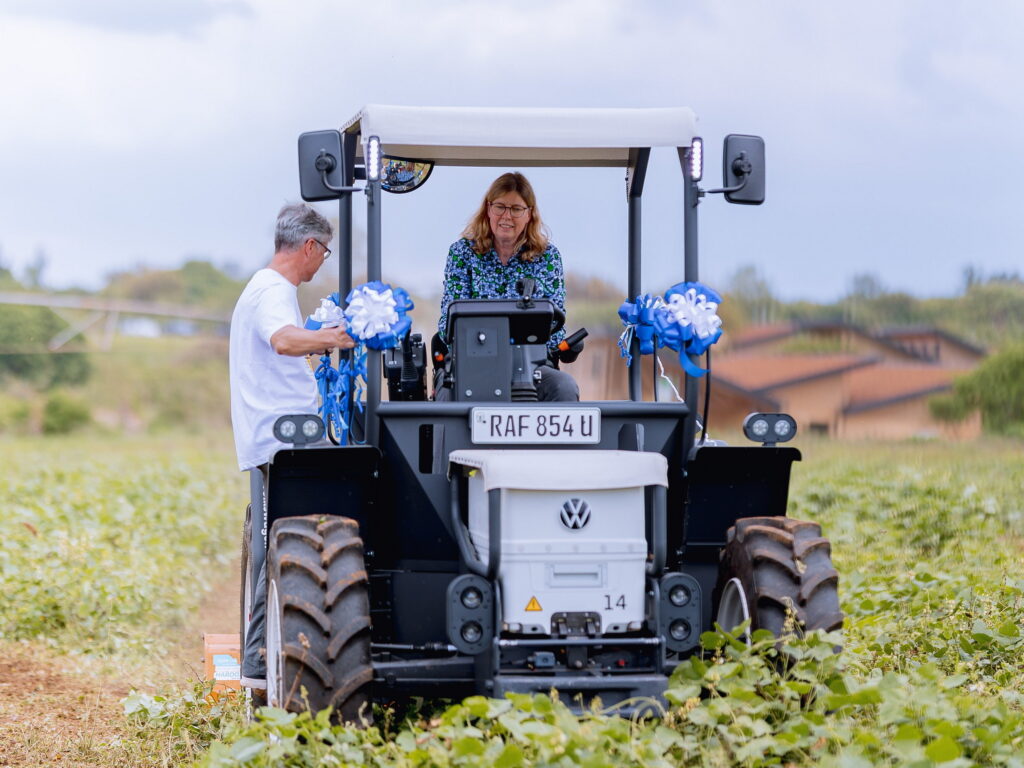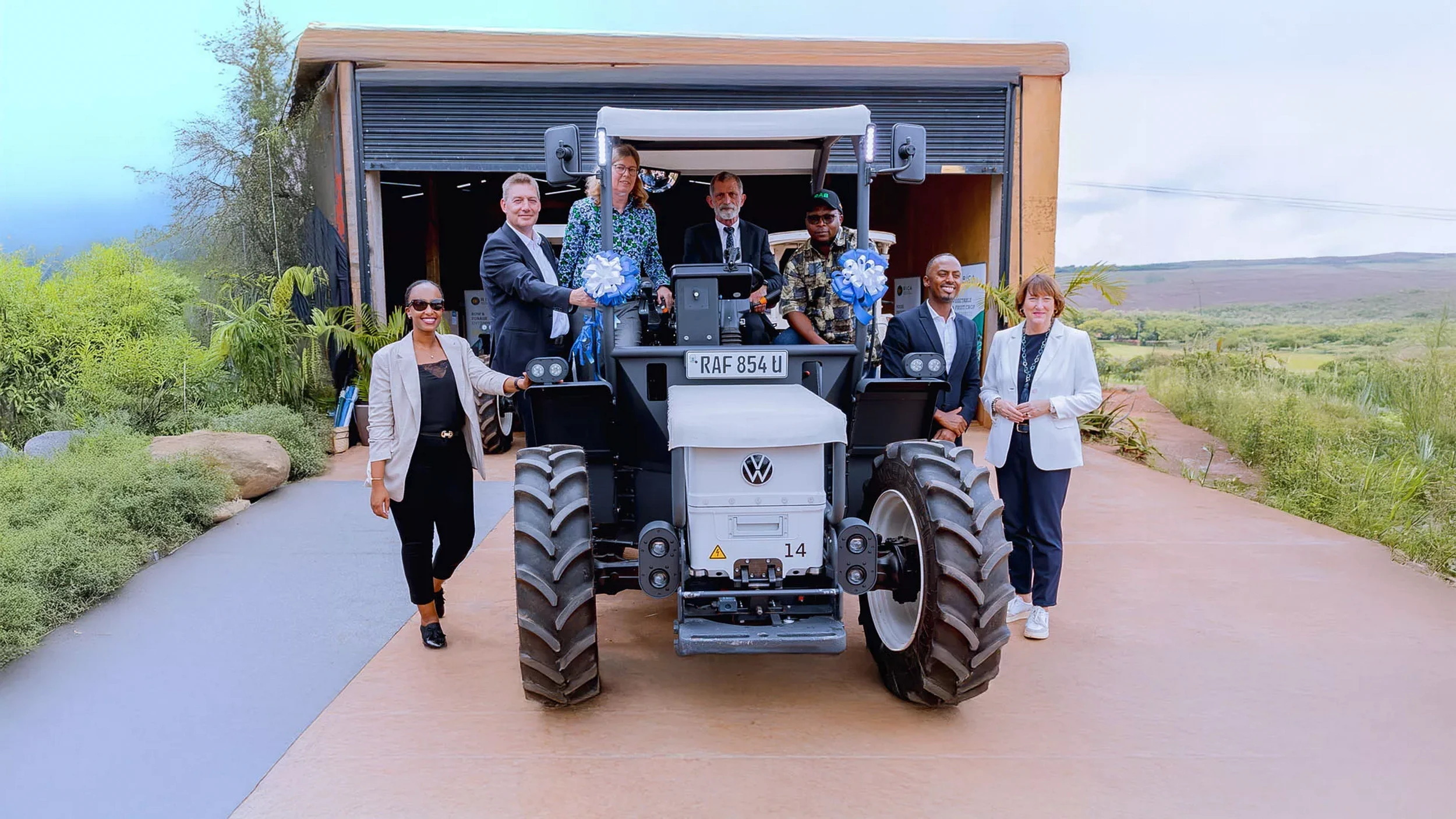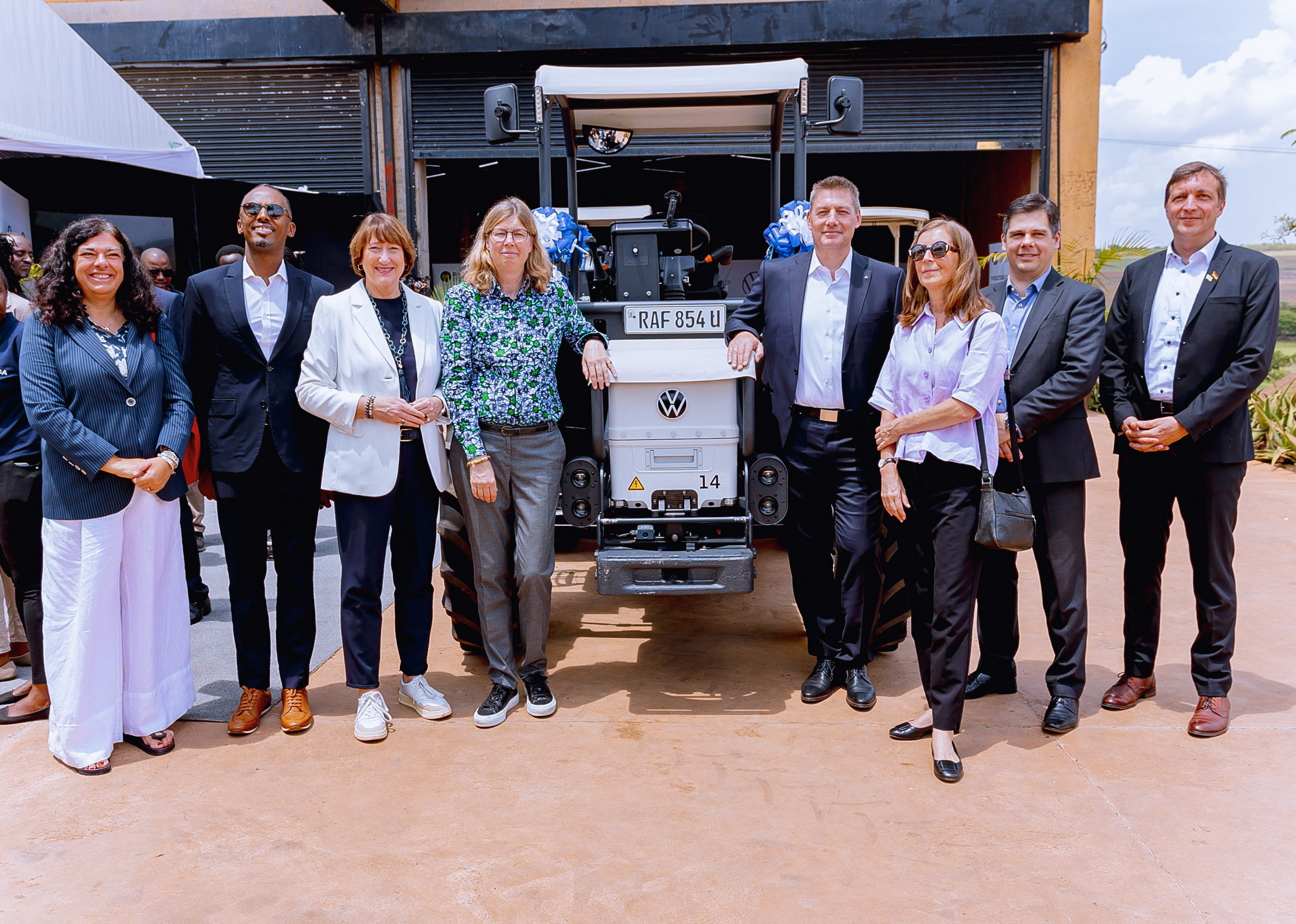- VW Group announced the start of the GenFarm Project in Rwanda, Africa.
- The company will be renting e-tractors and e-scooters to locals.
- The vehicles will be charged using renewable energy from solar panels.
Volkswagen might be navigating choppy waters lately, but that hasn’t stalled its knack for exploring some interesting side projects. One standout example is the GenFarm Project in Africa, a fresh initiative featuring VW-branded e-tractors and e-scooters offered as rentals. It’s not every day that you see a carmaker best known for Golfs and Passats moonlighting as a supplier of farm equipment.
The company recently announced that the GenFarm Project has entered its pilot phase. Its goal is to bring modern, sustainable farming technology to rural areas in Africa, an idea that sounds more Silicon Valley than Wolfsburg. Still, there’s merit to the ambition.
More: South African Police Get 50 New VW Golf GTIs For Patrols
At the heart of the initiative are several fully electric tractors supplied by VW’s Innovation Center Europe. These machines are being marketed as “reliable, sustainable, and environmentally friendly” alternatives to traditional diesel-powered equipment. Why go electric in a region where infrastructure can be patchy? According to VW, the high cost of fuel in Africa made EVs the more logical choice.
Under the hood—or rather, under the seat—the electric tractors produce a modest 27 hp (20 kW) and draw energy from a 32 kWh battery. Charging takes place at VW’s facilities using renewable energy from solar panels, and the use of swappable batteries is a clever touch, designed to minimize downtime. The company is betting that this approach will address the two biggest challenges for rural EVs: access to electricity and the need for continuous operation.

Dr. Nikolai Ardey, Managing Director of Volkswagen Group Innovation, stated: “Farmers can book an e-tractor including a trained driver for affordable sustainable farming. The unique selling point of the project is the use of the battery swap system. In this way, the battery becomes part of the hub’s energy infrastructure as well as energy storage for the tractor”.
The program isn’t just about tractors. It also incorporates e-scooters, which VW says will provide “mobility services for the transportation of goods and people.”
VW’s operational base for the GenFarm Project is located in Gashora, Rwanda, about 60 kilometers (37 miles) from Kigali. Known as the Empowerment Hub (or e-Hub), this facility will feature photovoltaic power systems and energy storage infrastructure, forming the backbone of the project’s renewable energy supply. The hub is expected to be fully functional by the first half of 2025.
The origins of the GenFarm Project trace back to 2021 when VW Group’s then-CEO, Herbert Diess, got behind the wheel of the first electric tractor prototype. Since then, the initiative has gained traction through partnerships and government backing. In 2023, the Government of Rwanda provided land for the project’s operations, and support soon followed from the Rwanda Institute for Conservation Agriculture (RICA) and the Deutsche Gesellschaft für Internationale Zusammenarbeit (GIZ), a development agency representing the German government.
According to VW, agriculture accounts for 25 percent of Rwanda’s Gross Domestic Product and has long played a “pivotal” role in supporting the livelihoods of its population. By introducing electric solutions, the GenFarm Project hopes to modernize the sector and reduce its environmental impact, all while empowering local communities.
Yesterday we celebrated the launch of the GenFarm project along with our @VWGroup & @VWRWanda colleagues!
This innovative farming pilot will be making use of e-tractors as part of a holistic ecosystem that services rural areas in Africa.
Learn more – https://t.co/ibv0Mp5jqb. pic.twitter.com/CUqjc3oxjq— Volkswagen Group Africa news (@VWGAnews) October 23, 2024








